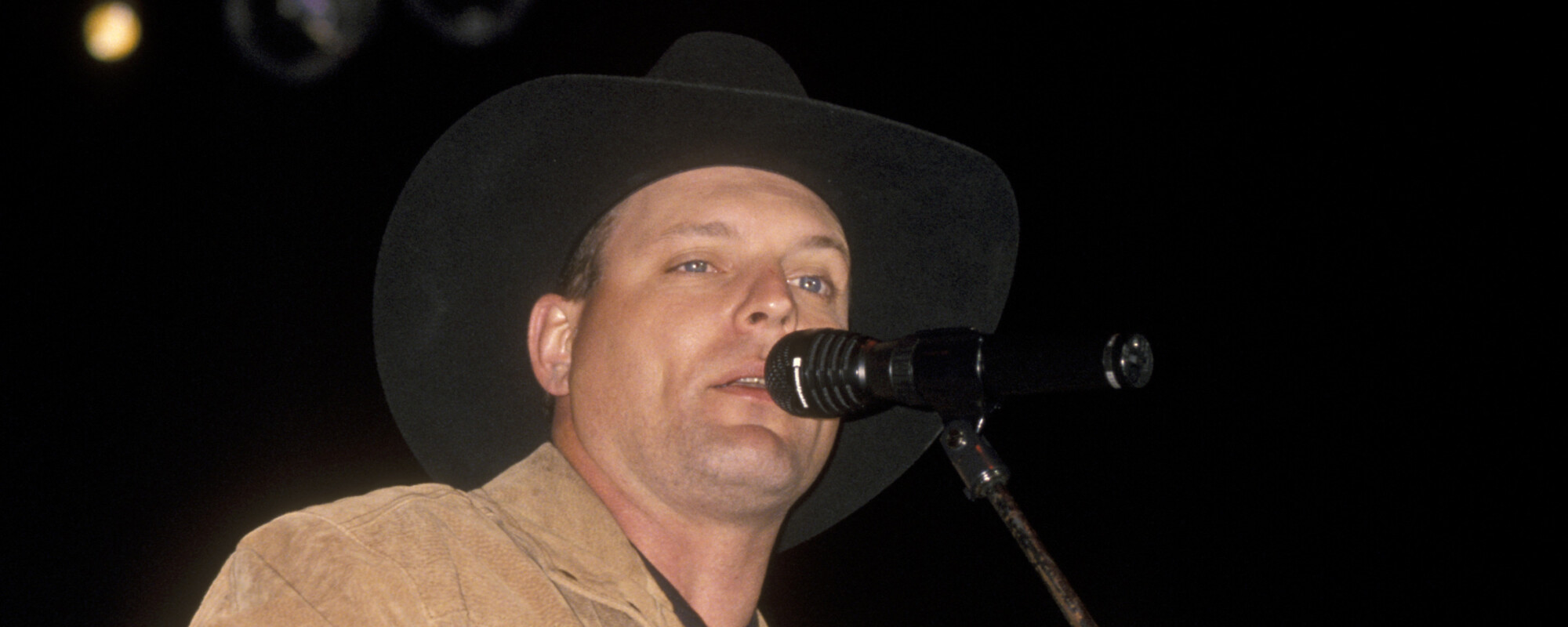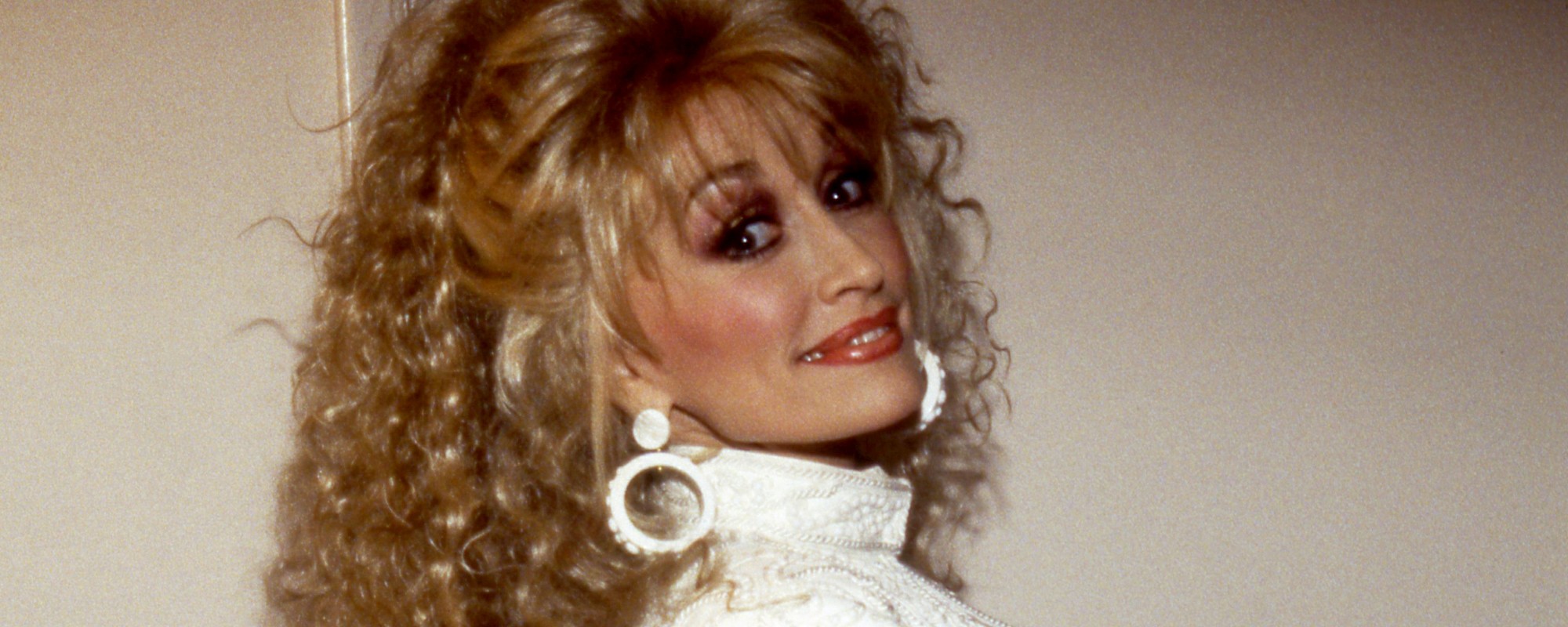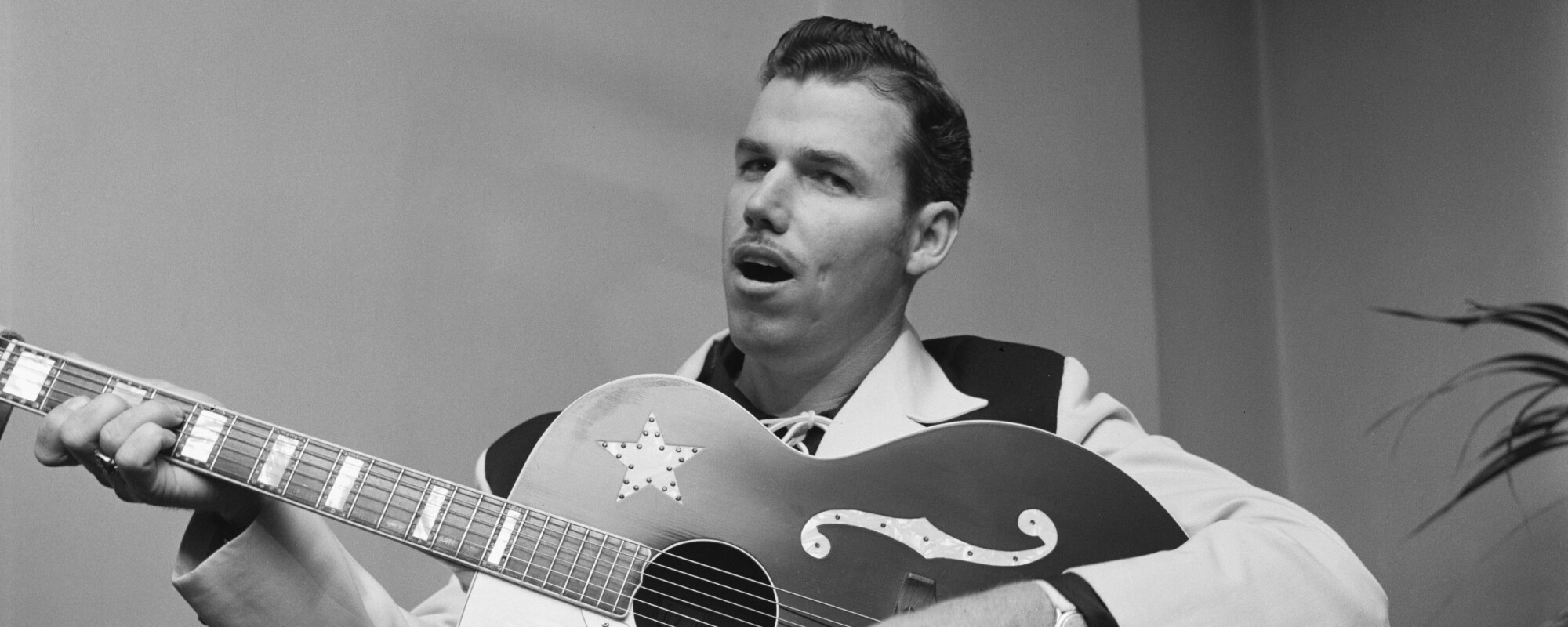Tomorrow started on this day for Garth Brooks in 1989—it’s when Capitol Records released his second single, “If Tomorrow Never Comes,” which became his first No. 1 hit. Brooks wrote the ballad with frequent collaborator Kent Blazy, and released it on his self-titled debut album.
“‘If Tomorrow Never Comes’ will probably always be my signature song,” Brooks said in the liner notes for his album The Hits. “I ran the idea for this song by what seemed like a thousand writers, and no one really seemed to understand what I was looking for.”
Brooks’ manager Bob Doyle introduced Brooks to songwriter Kent Blazy. In him, Brooks found a kindred creative spirit.
“I passed this idea by Kent, and he had the first verse down within 15 seconds,” Brooks said. “I could tell he just felt it. Kent Blazy is a wonderful man, full of love and energy. And, if we never write again, I hope that we are always friends first.”
“If Tomorrow Never Comes” explores the idea that if the singer dies without warning, will his loved ones know how much he cares about them?
Videos by American Songwriter
Garth Brooks and Kent Blazy: “Friends First”
Lyrics include: If tomorrow never comes/ Will she know how much I loved her?/ Did I try in every way to show her every day/ That she’s my only one?
When Blazy met Brooks, the Oklahoman was cleaning churches and selling boots. Blazy had a demo studio and was working with singers including Brooks’ now wife Trisha Yearwood, Joe Diffie, and Billy Dean. Blazy was always looking for demo singers. When Doyle told Blazy about Brooks, he said: “Well, he writes a little bit, too.”
Blazy made an appointment to meet Brooks on February 1.
“He came in, he said, ‘You got any ideas?’” Blazy recalled that he had told Brooks he “had a whole book.”
However, Brooks had an idea of his own. He had run the concept for “If Tomorrow Never Comes” by 25 writers, and no one had liked it.
“I was kind of thinking, ‘Well, thanks,’” Blazy said sarcastically, recalling the scene to Bart Herbison’s NSAI. “But he played it for me, and it resonated with me. It was something my mother told me; tell the people you love how you feel about ’em while they’re still alive.’”
“He was Killing the Star of the Movie”
Blazy told Garth Brooks he loved the idea, but he saw the problem immediately.
“(He was) killing somebody off in the first verse,” Blazy said. “So it’s like killing the star of the movie off. He said, ‘Well, what would you do?’ And he says, I spewed out this stuff. And he wrote it down.”
In large part, that became “If Tomorrow Never Comes.” However, it didn’t catch on immediately. Brooks and Blazy made a guitar/vocal work tape and pitched it around town for a year. No one was interested. They set another writing appointment to see if they could spruce it up a bit to generate more interest.
At the same time, Doyle was shopping Brooks to every record label in town in search of a record deal. They met with seven record labels and got seven rejections.
In August 1988, Brooks stepped into a performance spot at the Bluebird Cafe after someone didn’t show up—about one week before he was due to meet Blazy again. He didn’t know it at the time, but the audience was filled with record label executives. Capitol Records’ Lynn Shultz — who had already passed on Brooks that week—was among them. He sang “If Tomorrow Never Comes,” and after the show, Shultz asked for another meeting.
“If Tomorrow Never Comes” Attracted a Record Deal
“He came in and got a record deal,” Blazy said. “His second single, my first No. 1, his first No. 1.”
“If Tomorrow Never Comes” opened the floodgates for Brooks in country music. He’s charted at least 20 No. 1 songs over the years, and is the top-selling solo country artist of all time. He has two Grammy wins, 14 CMA Awards, including seven coveted Entertainer of the Year trophies. He’s a member of the Country Music Hall of Fame and the Musicians Hall of Fame.
(Photo by James Schnepf/Getty Images)












Leave a Reply
Only members can comment. Become a member. Already a member? Log in.